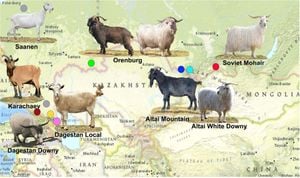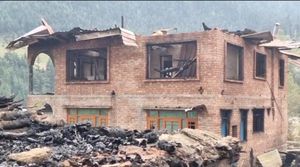Kazakhstan's participation at UNESCO headquarters showcased its commitment to International Mother Language Day, celebrated globally on February 21.
The event featured panel discussions involving scholars, NGOs, and diplomats, focusing on linguistic diversity and the challenges faced by endangered languages. Aigerim Yersainova, Kazakhstan's permanent delegate to UNESCO, spoke passionately about the country's initiatives to preserve its state language, Kazakh, especially through digital platforms.
Yersainova emphasized, "Kazakhstan ensures the rights of various ethnic communities living in the country to learn and use their mother tongue, along with Kazakh." The discussion highlighted the importance of multilingual education and cultural heritage, with representatives discussing their roles in advocating for language rights.
The Assembly of the People of Kazakhstan, celebrating its 30th anniversary, was noted for its pivotal role in fostering interethnic harmony. Events at UNESCO underscored the significant mission of preserving mother languages and cultural diversity, viewed as cornerstones for fostering peace and mutual respect.
Meanwhile, the University of Bern's announcement to discontinue its Tibetan studies program has drawn criticism from the Tibetan community and language advocates, marking it as indicative of broader trends impacting language instruction.
Nathalie Matter, head of communications at the University of Bern, stated, "It was found... the number of students for the specialization in Asian religions... was very low." This raises questions about the future of Tibetan language and culture studies amid shifting academic priorities.
Scholars like Prof. Yannick Laurent expressed concerns, emphasizing Switzerland's unique role as home to one of the largest Tibetan communities outside Asia. "The end of these study programs is very regrettable," echoed Drongpatsang Ngedun Gyatso, president of the Tibetan Community. "With the closure of such programs, we may lose important pathways to preserving our cultural heritage and linguistic identity."
The decision, coupled with geopolitical pressures such as the changing nomenclature of Tibet, exemplifies the urgent need for advocacy and support for minority languages. It raises broader discussions around how communities can mobilize efforts to sustain their languages.
Within indigenous communities, preserving language has become intertwined with cultural identity. For example, Cristina Álvarez Díaz works tirelessly to promote the Tzeltal language through food and traditional practices. Her initiatives highlight the role of youth as custodians of cultural identities linked to their languages.
With digital media offering new avenues for sharing and celebrating languages, activists like Díaz are redefining how communities engage with their linguistic heritage. She explains, "The flavors of my community... combined with language preservation work are key to ensuring our cultural identity thrives."
These narrative strands reflect both the individual and collective responsibilities in upholding linguistic heritage and the significance of platforms like International Mother Language Day. While Kazakhstan showcases models of multilingualism, the challenges faced by the Tibetan community spotlight gaps needing attention.
International observances of language stem from both celebratory and urgent contexts, pointing to the need for systemic support and innovation within educational frameworks to advocate for cultural preservation through language.
All communities, echoed by both celebrations and sobering events like those seen at the University of Bern, remind us of the high stakes involved—in safeguarding languages, we preserve reflections of identity, history, and humanity.



